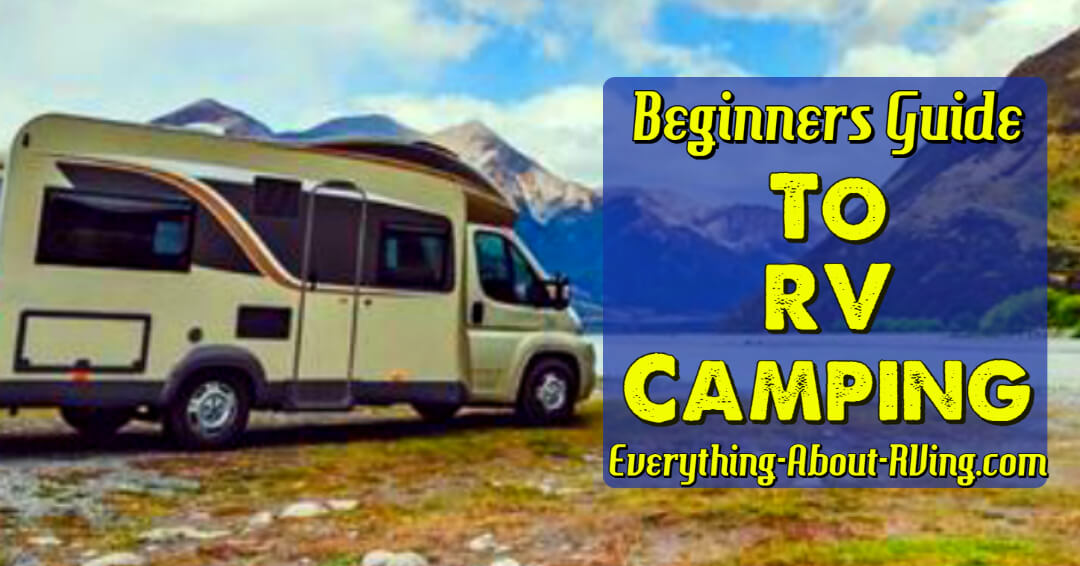- Home Page
- RVing Tips & Tricks
- Rv Camping
A Beginners Guide to RV Camping
By Michael Everett
In this brief guide to RV camping, I will be sharing some tips that you can use to prepare for a rewarding experience on your first RV camping trip
If you have a dream or desire to travel around the country in a recreational vehicle (RV), then RV camping will offer you an opportunity to fulfill that dream. RVing is affordable way to travel in comfort with all the freedom and flexibility that other types of transportation do not offer.
In this guide to RV camping, I will be sharing some tips that you can use to prepare for a rewarding experience on your first RV camping trip. After reading this guide, you will know whether you need to buy or lease your RV and how to prepare for your trip
1. Know When to Rent or Buy an RV
As a beginner, you should take your time and explore your options before you choose to buy or rent an RV. For your first trip, you should carefully select an RV that you like based on reviews from other RVers and then rent it. After trying out a few brands or models and you want to go on an extended RV camping trip, you can decide to buy one.
Many new RVers find it easier to use pop up campers. The best pop up camper RVs offer beginners a smaller vehicle to drive and a lot of space at the campsite. You should practice how to set up a pop-up camper before going on your trip.
2. Learn Everything You Can About Your RV
Getting to know your motorhome is a must for every beginner. Read about the vehicle, download the manuals and study what other users have said about an RV before you set out. Even if you are renting your first RV, your knowledge of its features, limitations and mode of operation will help you to avoid unnecessary problems.
If you are taking a pop-up camper, visit a forum for pop up camper users and ask questions: ' how much do pop up campers weigh?' 'how do I set it up?' When you have adequate knowledge about how the RV works, you will not make common operational errors like overloading power circuits. You will also save the time you would have spent at the mechanic workshop if you know how to do basic troubleshooting when you are on the road.
3. Practice Driving Before Going on a Long Trip
Use Google Maps to get as much information as possible about the roads and terrain you will navigate on your planned trip. Then plan a smaller trip to learn and master the basics of driving an RV.
Driving an RV like an expert will take some practice. You need to learn how to ascend hills, change lanes and park. Remember that the remote campsites may not be served by the type of roads where you usually drive to and from work.
4. Take A Well-stocked Tool Kit and Spares
A recreational vehicle is a relatively complex system with a large number of working parts. This makes it susceptible to more operational faults than your family car. So, you need to take a well-stocked tool box to fix any minor faults.
You should also take along spare parts like bolts and nuts, light bulbs, connectors, fuses and other parts that are peculiar to the RV brand or model you are driving. If you fail to do this, you may end up waiting for several days to order and receive spare parts from a dealer or supplier.
5. Put a Plan in Place
If you've gone on a few camping trips, you will appreciate the need to make a detailed plan. Your plan should include:
- Finance: set estimates for food, entertainment, camping and RV maintenance
- Food: prepare your meals and ingredients and freeze them, take a fuel substitute.
- Travel route: know the best route for RVing and plan alternatives
- Campground: create a campground set up routine and practice in a location close to your home before you go on a long trip.
Conclusion
This short guide should help you to get started with the preparations for a successful RV travel adventure. Remember not to skimp on your research and test driving so you can be adequately prepared to handle any situation that occurs during your camping trip.




